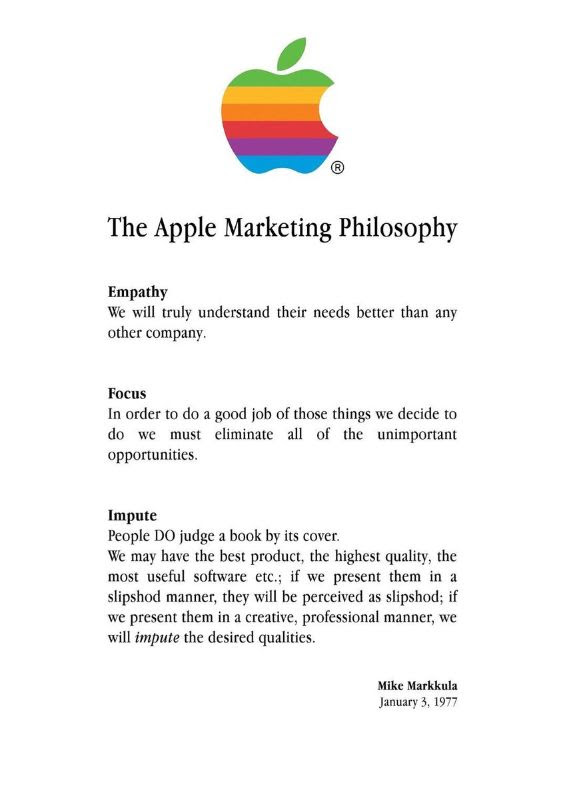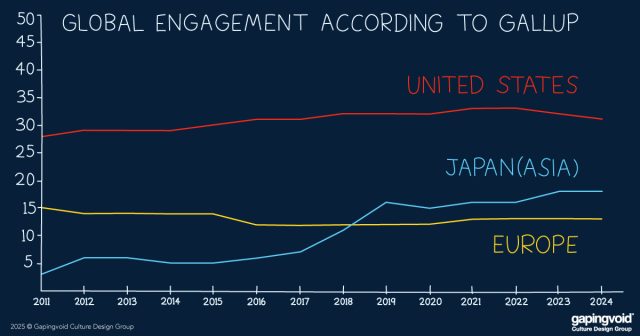
CAVEAT: Generally, we shy away from using Apple as a case study because 1. They are such outliers and 2. They are overused by everybody and their dog…but the following was such a rich insight, we really had no choice.
As you read on it will be easy to just view all this as marketing, but it isn’t.
It is a worldview, and they integrated three simple ideas into everything they did.
The alignment between marketing, product, and culture is an unbeatable operating strategy.
With that in mind…
We came across this gem on Twitter recently, thanks to George Mack.
“The Apple Marketing Philosophy”
Written by Steve Jobs and Mike Markkula in 1977
1. Empathy
We will truly understand their needs better than any other company.
2. Focus
In order to do a good job of the things we decide to do, we must eliminate all the unimportant opportunities
3. Impute
People DO judge a book by its cover.
We may have the best product, the highest quality, the most useful software, etc., if we present them in a slipshod manner, they will be perceived as slipshod; if we present them in a creative, professional manner, we will impute the desired quality.
Here’s why we (and everybody else and their dog) like it so much.
- It’s short, simple, and clear. No marketing buzzwords, it’s all plain English.
2. Its goals are easy to understand, easy to relate to on an emotional level. They’re strong, human values, not values around metrics, shareholder value, and other impersonal bean-counter abstractions.
3. It’s enduring. The interesting thing is, the document is nearly a half-century old, and yet we still see Apple strongly adhering to these values, with hardly any deviation whatsoever. When was the last time your company stuck with something more than a couple of quarters, let alone forty-plus years?
And the proof of the pudding is in the eating. This ethos is still going strong, four decades later.





Keeping it simple is an art, or how Coco Chanel put it “Simplicity is the ultimate sophistication.”
Sarah
The most important element in driving a company’s operations efficiently and successfully is making the correct business decisions, which originate from meaningful or actionable insights rather than transactional data.